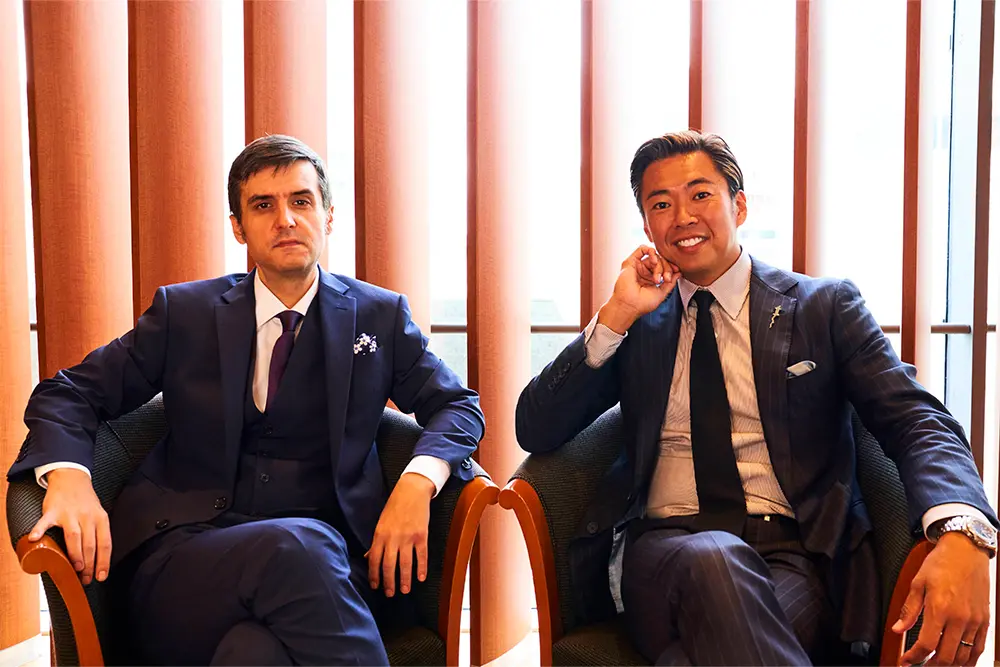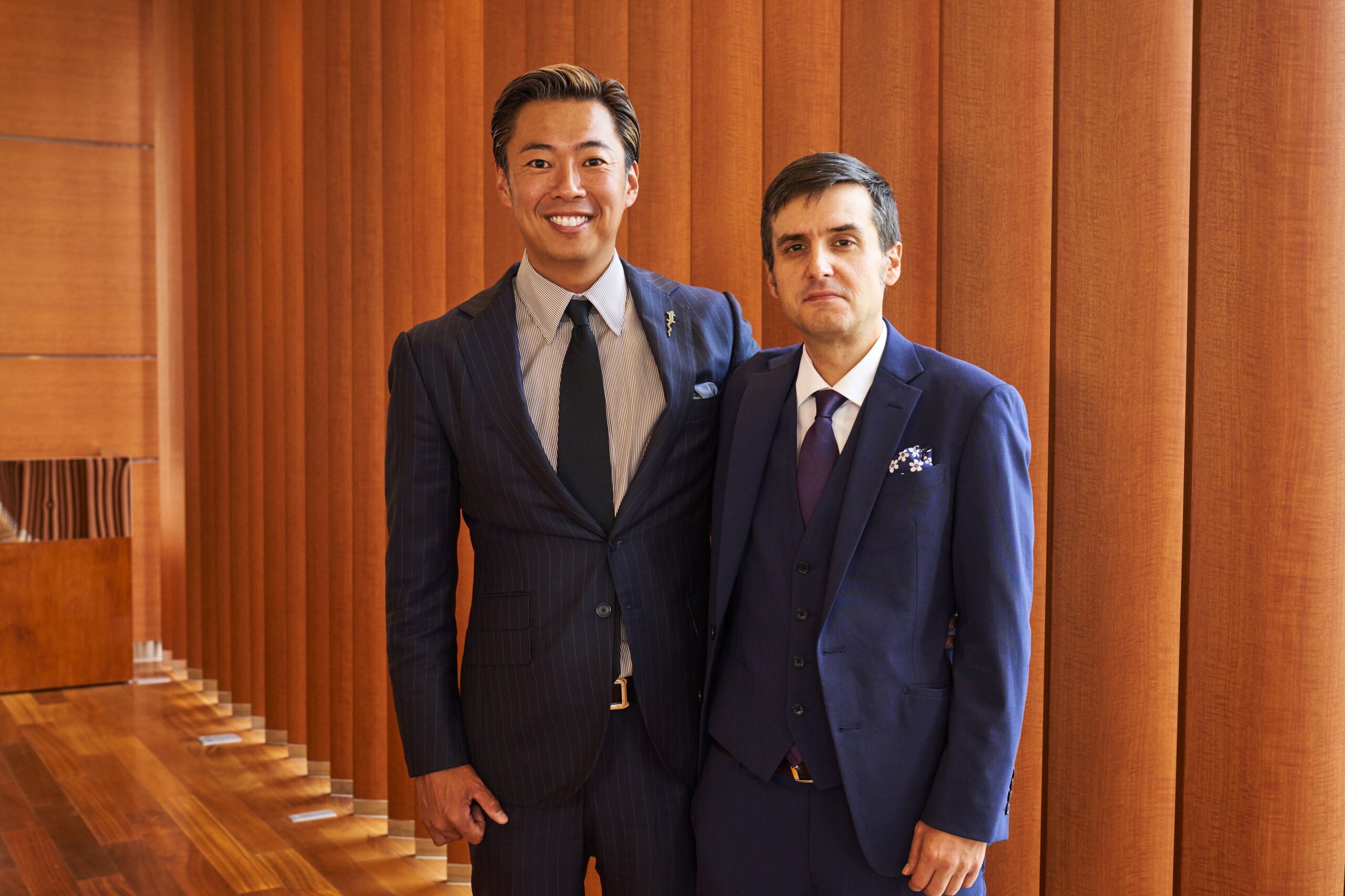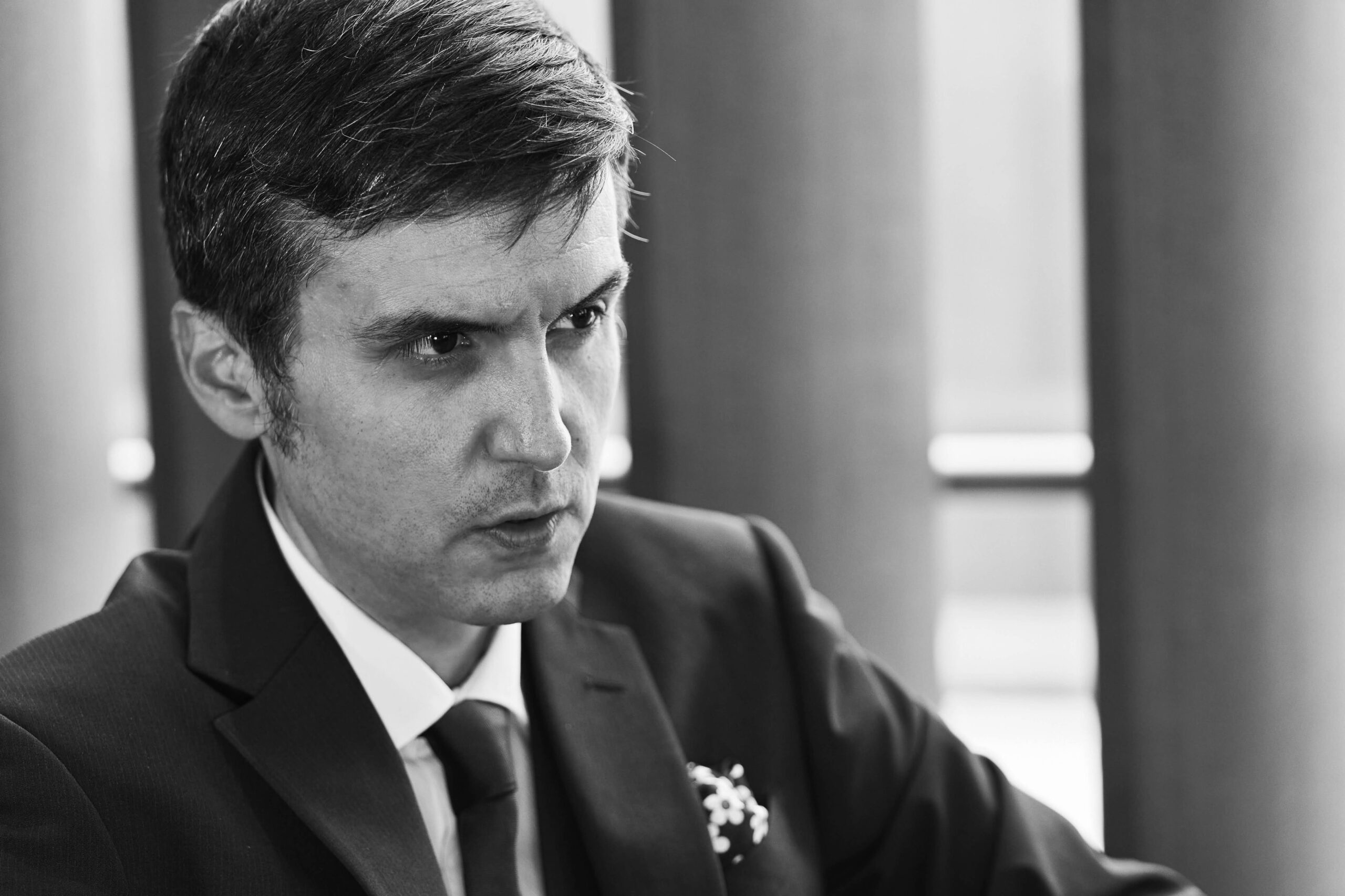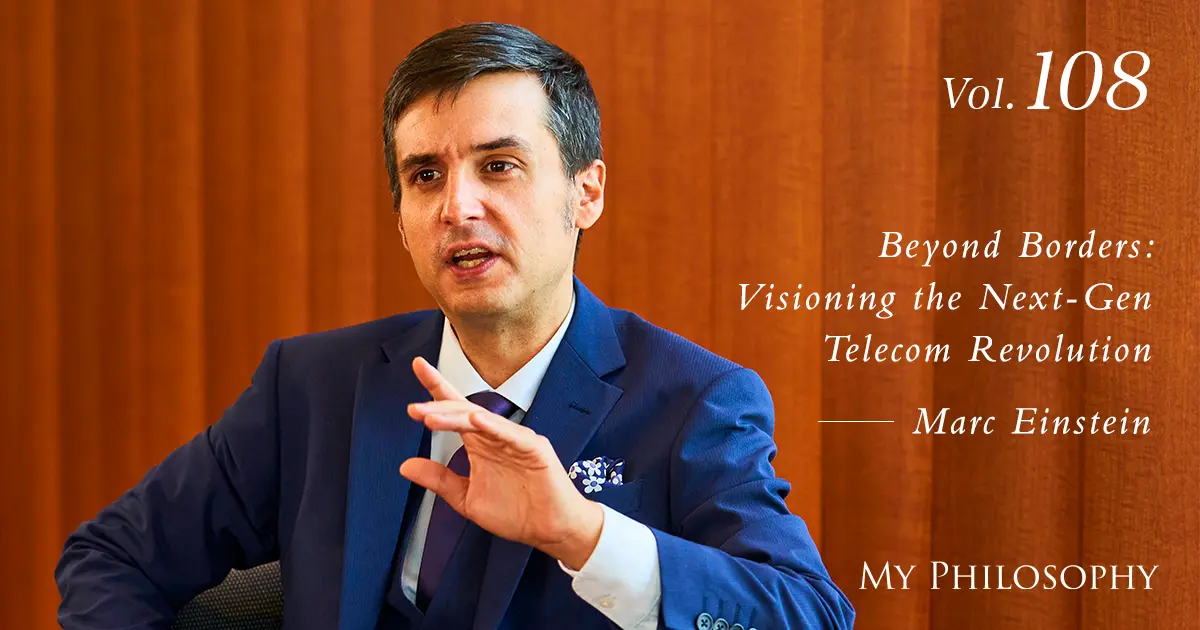
You wouldn’t think the future of the Japanese telecommunications industry would involve the story of Jewish immigrants to Ohio, but that’s just one of the ways analyst Marc Einstein can surprise you with unexpected, tangible answers to complicated questions. Many tech companies in Japan have grown to depend on Einstein’s insights to guide their way forward, and the country’s ability to withstand an increasingly competitive world may very well rely on a man whose success traces to his own family’s resilience.
Profile
Vol.108 Marc Einstein
Chief Analyst of ITR Corporation
Marc Einstein hails from Cleveland, Ohio, and currently resides in Shiga Prefecture. He has previously called many cities around the world home, including Boston, Bangkok, Hong Kong, and Singapore.
Einstein graduated from Washington University in St. Louis with a double degree in Finance and Foreign Languages and has over fifteen years of experience in telecommunications and the digital media industry, with domain knowledge covering markets, management consulting, and business analysis.
He is currently the Chief Analyst of Telecommunications & Digital services at research and advisory firm ITR Corporation.
From Persecution to Pursuit of the American Dream
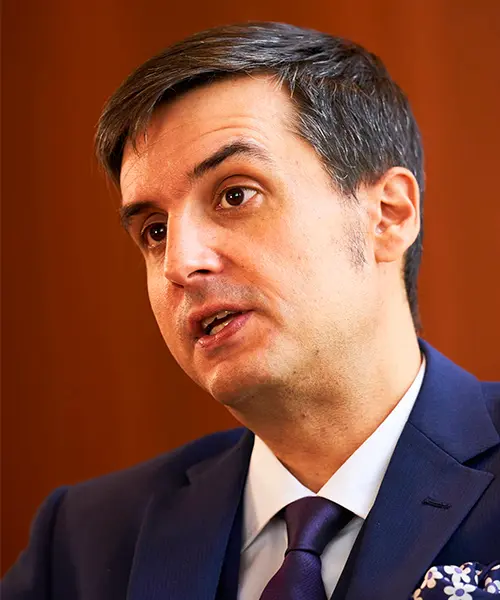
Marc Einstein is in the business of knowing. When somebody notes to Einstein that he’s wearing purple, he’s quick to point out that only two countries in the world have purple in their flag. This kind of trivia may not be what he’s paid to deliver to clients, but it’s the breadth of knowledge they’ve come to expect.
“I work with a lot of Japanese companies that have wonderful, fantastic ideas about the metaverse and AR [augmented reality] and XR [extended reality]; they just don’t have the hardware yet,” Einstein says. It’s his job to help them reach a place where their ideas can become realities, and Einstein’s family history offers a successful case study in ambition.
The descendant of Czechoslovakian Jews, Einstein recounts that his grandparents fled Europe after World War II when his father was just one year old, swapping their savings at the airport for two tickets to the Americas. After seven years in Cuba, they moved to Ohio to pursue the American dream. And that they did, to great success. Einstein’s father still owns and operates his own accountancy firm.
Marc Einstein, meanwhile, grew up living an idyllic midwestern American childhood. “We knew all of our neighbors and played baseball in the summers. Fireworks and Halloween and all that good stuff.” Marc describes himself as a bookish child, intent on attending a top-tier university and already beginning to look beyond America at an early age, traveling to Ecuador at age fifteen to volunteer and practice his Spanish.
Thinking back now on his early life in Ohio, Einstein can’t help but view it through an analytical lens. “All the manufacturing is gone. Cleveland used to be a big steel city, and that’s all overseas now.” The Steel Belt became the Rust Belt.
Ohio to Tokyo via Sushi-Go-Round
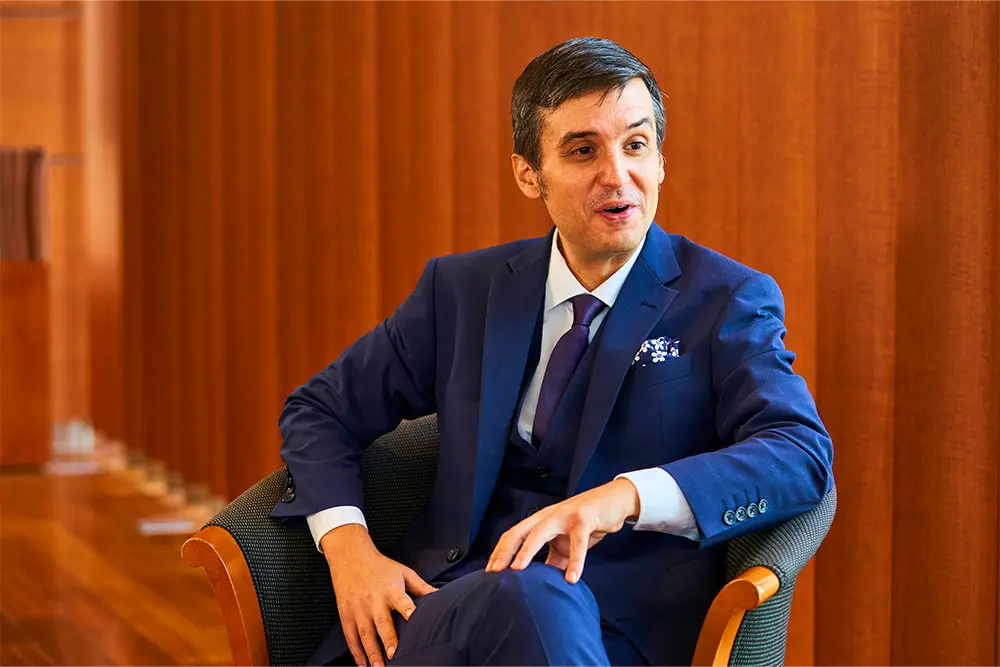
Einstein’s hard work would pay off when he was accepted to Washington University in St. Louis. The son of an accountant and now proficient in Spanish, he assessed that his best path forward was a double degree in foreign languages and finance. He was right. Plenty of finance majors in the US may speak Spanish, but he was the only one his first employer interviewed who also knew Portuguese—not to mention French and Thai. This made him perfect for the telecom market research company’s Latin America team.
Why telecom market research? To answer that, Einstein recalls a life-changing night out.
While studying abroad in Thailand, he traveled all around Asia to visit his university friends, and this included a trip to Japan. “This must have been 2002 because I remember the World Cup was here. I told my Japanese friend that I’d heard about this kaitenzushi sushi-go-around stuff. I don’t think there was even one in America at that time. And my friend just took out his phone. I was like, ‘What are you doing? Are you calling them?’ And he was like, ‘Nope, we can find them on the internet on our phones.’ We went to the restaurant, he scanned a QR code, and that was it. I was thinking, ‘This is Star Trek. This is amazing.’”
What started as a simple sushi dinner would change Einstein’s future entirely. “People ask me all the time, ‘Why did you move to Japan?’ They’re expecting me to say anime or food or whatever, and I say, ‘No. Mobile network design.’ That’s the truth. Japan invented mobile internet. Maybe I’m the only non-Japanese person who says this, but that’s honestly why I moved here.”
Japan No Longer the Sole Player in Telecommunications
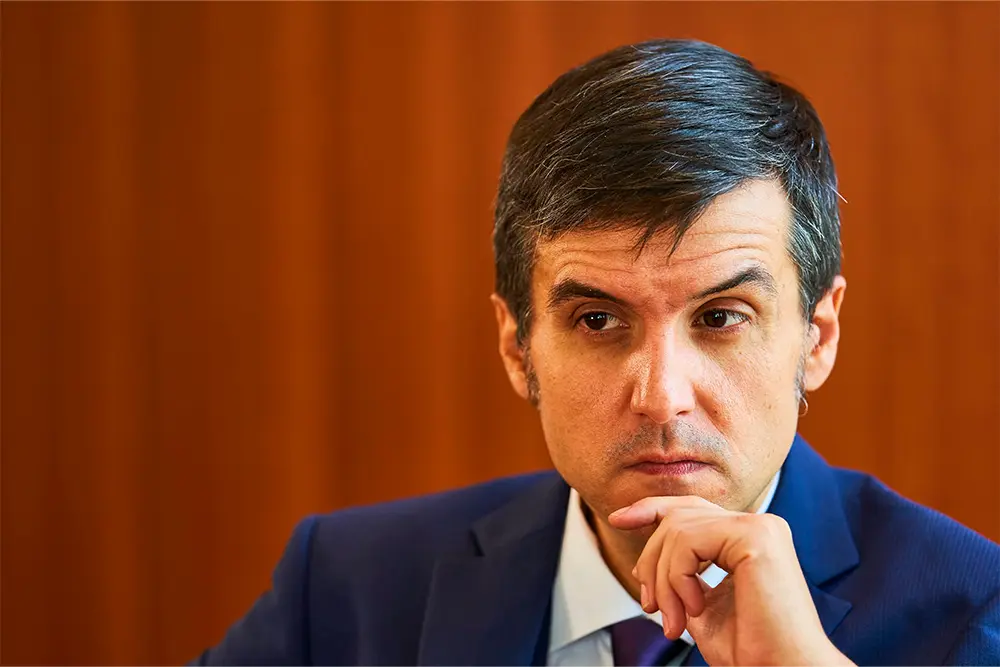
The technology Einstein encountered that fateful night was i-mode, a mobile internet service launched in February 1999 by NTT Docomo. Despite working in an entirely different hemisphere, Einstein says Japan became impossible to ignore. “I started in the Latin America team because that’s where my skills were. But the innovation and the excitement was always happening in Asia, particularly Japan. And that’s when I started working with NTT Docomo and KDDI, who were doing things in Latin America.” Two years into his first job, Einstein requested a transfer to Hong Kong, planting him back on the continent where he remains to this day. Two decades on, he still works with many of the same companies, except now he’s chief analyst at the largest IT-focused research and advisory firm based in Japan.
“The world has changed a lot since the i-mode days, but there are still a lot of very interesting things going on here. Right now, I’m working with some companies here on 6G.” He also mentions AI, quantum computing, cryptography, and the Internet of Things (IoT) as game changers, and he’s excited to help his clients navigate the inevitable bumps in the road. And as for those companies exploring alternate realities, whether they be virtual, augmented, or extended, Einstein sees limitless potential for applications; they’re simply limited by the hardware. “What we’re experiencing today is the equivalent of 1G smartphones.”
There’s no better time to be an analyst in the IT industry. But are there now better places than Japan?
Einstein laments that while he can verify a transaction in six seconds using blockchain technology, it can take days to request and receive a credit card bill in Japan, not to mention that some ATMs aren’t even open over the New Year’s holidays.
“i-mode was the first time anything like that had been invented. In the 2G and 3G eras, Japan was the king of the world.” But now, the US, China, Korea, and Europe have caught up. “This is no longer a Japan-only story. While Japan is still very strong, the rest of the world has woken up.”
How “Only in Japan” Can Change the Future
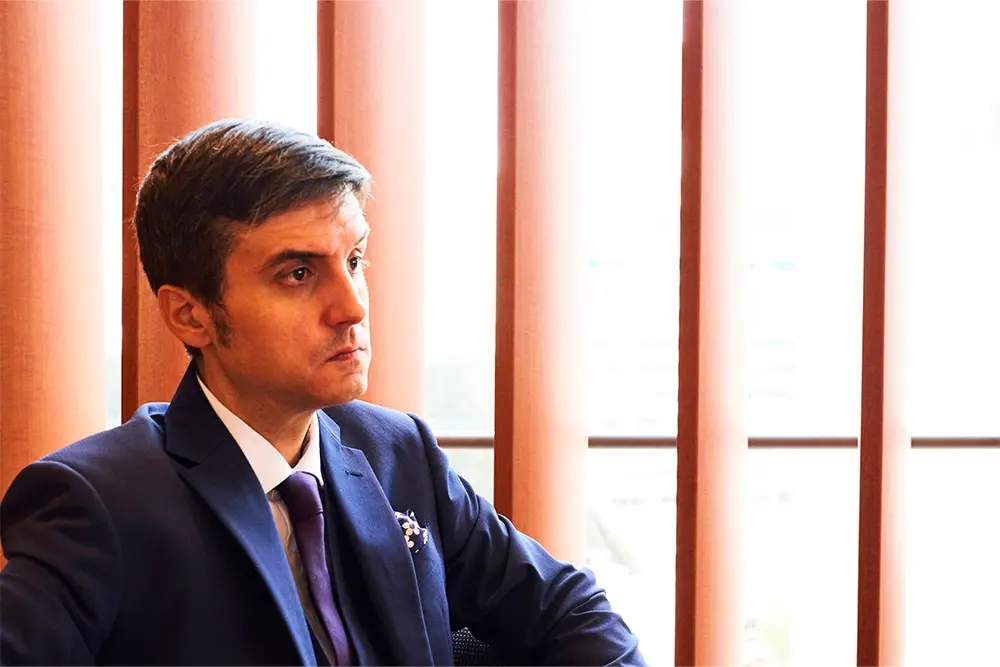
Still, it doesn’t sound like Einstein is leaving the country anytime soon. He now lives with his wife and their newborn son on the shores of Japan’s largest freshwater lake, Lake Biwa. But living there has only been possible due to how COVID-19 shook up Japan’s entrenched, traditional work style. Japan has ostensibly been thinking about teleworking for at least twenty years, but Einstein points out, “It never happened until COVID-19. And then everyone’s online in a month. That just tells me it’s never been about technology. It’s about culture.”
Now that remote work has gained some traction, Einstein points to the need to rethink security, office space, and everything else in light of the changed environment. But here, Einstein’s eye for analysis shines through, citing an exceptionalism that sets the country apart. “The US is a hard-nosed capitalist country, but in Japan, I see much more interest in using technology for social issues.” He cites efforts to use self-driving cars to support drivers who have trouble seeing and notes that this is just one of “a million ways that technology can help solve Japan’s societal issues.” Einstein believes that if an enterprise builds a message promising real solutions to social problems, the funding will come.
On the precipice of major change, Japan now finds itself on the path to a better future for generations to come, much like Einstein and his family before him. Coincidentally, years after falling in love with its mobile network over sushi, the insights Einstein offers now could provide the direction for Japan to become more relevant than ever before. He concludes, “It’s been a twenty-year journey so far, and I’m still not done. I probably have twenty more years left in me.”
DK, thanks for sharing my story. I hope it will inspire people to always follow their passions no matter where in the world they take them. The coming years will be difficult for Japan’s IT market and the economy overall and many tough changes will have to be made in my opinion. Japan needs people like you who exude entrepreneuralism more than ever. Please keep up the good work!<>
Chief Analyst of ITR Corporation
Marc Einstein
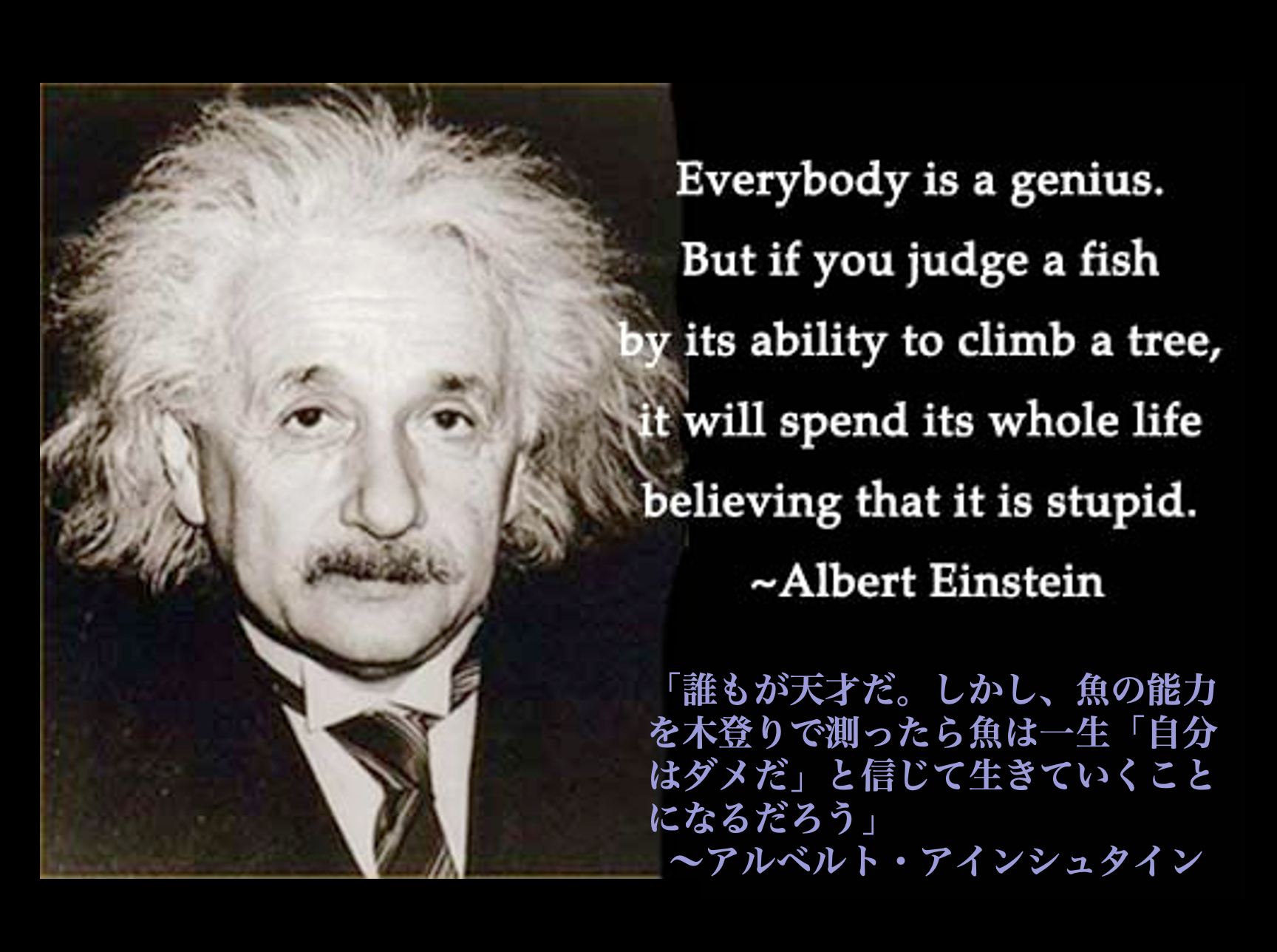
My interview with Marc Einstein was an incredibly valuable experience. He cherishes the words of Einstein: “Everybody is a genius. But if you judge a fish by its ability to climb a tree, it will live its whole life believing that it is stupid,” and shows a deep respect for diversity and creativity. Mark shared insights into the future of Japan’s telecommunications industry while honoring his roots. The resilience learned from his family’s history, combined with a passion for technological innovation, will be key to success in today’s competitive business environment. I was deeply impressed by his multicultural background and his ability to adapt to the constantly evolving market.
At Hiramatsu Restaurant “Argento” in Ginza, Tokyo Edited by: DK Sugiyama




